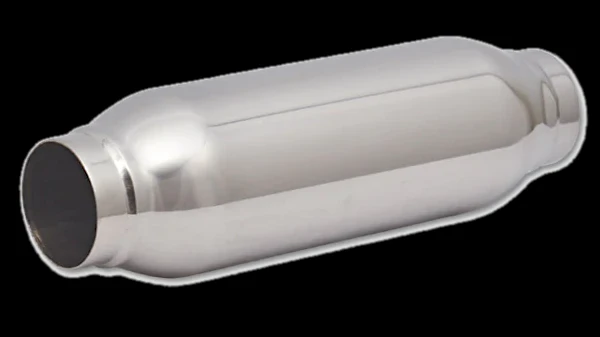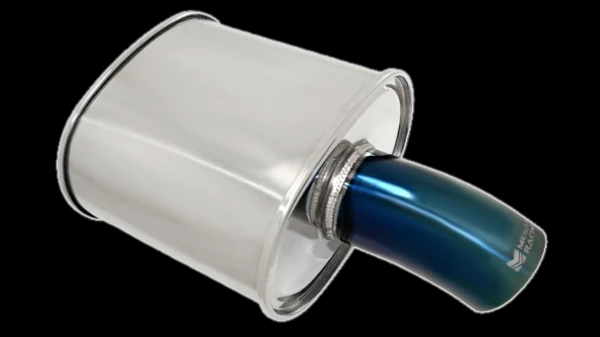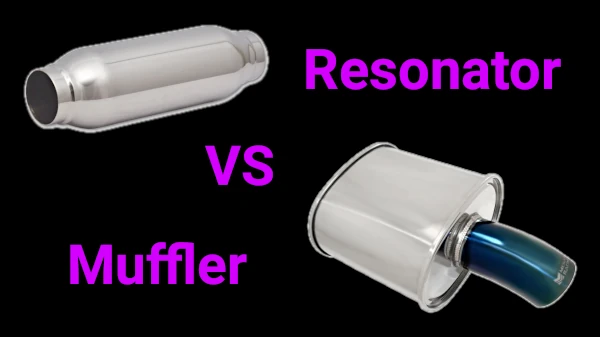RESONATORS VS MUFFLERS: The Battle of Exhaust System Components
When it comes to enhancing the performance and sound of your vehicle's exhaust system, two components often come into play: resonators and mufflers. These components are essential in managing the noise levels and optimizing the exhaust flow of your car. In this article, we'll explore the differences between resonators and mufflers, their functions, and how they affect your vehicle's overall performance and sound.
Resonators: Tuning for the Right Note

Resonators, while less well-known than mufflers, serve a crucial function in fine-tuning the exhaust note of a vehicle. They are usually installed in various parts of the exhaust system, primarily in the mid-pipe or near the catalytic converter. Resonators aim to eliminate specific frequencies or harmonics from the exhaust sound, contributing to a smoother and more pleasing exhaust note.
The operation of resonators involves the use of sound waves' destructive interference to cancel out unwanted frequencies. By creating resonant chambers and tubes of specific lengths and configurations, resonators can target and neutralize specific frequencies, resulting in a more refined exhaust tone. This allows for a customized sound experience without significantly affecting performance or causing excessive noise.
Resonators are particularly useful for achieving that distinctive sporty or aggressive exhaust note without making your car overwhelmingly loud. They can be used in conjunction with mufflers to strike a balance between sound and performance.
Mufflers: Quieting the Roar

Mufflers are perhaps the more well-known of the two components. They play a crucial role in reducing the noise generated by your vehicle's engine and exhaust gases. Mufflers are typically installed near the rear of the exhaust system and contain chambers and sound-deadening materials to dampen and reduce the noise produced during the combustion process.
The basic principle of how mufflers work involves sound waves and their interference. When exhaust gases exit the engine, they create pressure waves that result in noise. Mufflers use a series of chambers, baffles, and sound-absorbing materials to reflect and absorb these waves, effectively reducing the noise emitted. The specific design and internal components of mufflers can vary, which leads to differences in sound quality and overall performance.
One common choice is the "straight-through" or "glasspack" muffler, which allows for less restriction in the exhaust flow but may result in a louder exhaust note. On the other hand, chambered mufflers, such as the popular "chambered muffler" design, offer better noise reduction but may slightly restrict exhaust flow, affecting performance.
Performance Considerations
When choosing between resonators and mufflers, it's important to consider how they impact your vehicle's performance. Mufflers, especially chambered ones, can restrict exhaust flow to some extent. This restriction may lead to a minor reduction in horsepower and torque. However, straight-through mufflers, while offering less noise reduction, tend to have a minimal impact on performance.
Resonators, on the other hand, typically have a negligible impact on performance, as their primary function is to fine-tune the exhaust note without causing significant restrictions in exhaust flow.
In some cases, a combination of both resonators and mufflers can be used to achieve the desired exhaust sound and performance balance. Many aftermarket exhaust systems are designed with a combination of these components to provide the best of both worlds.
Legal Considerations
It's essential to be aware of local and state laws regarding exhaust modifications. Some regions have noise regulations that limit how loud a vehicle's exhaust can be, which may affect your choice of resonators and mufflers. To avoid legal issues, it's crucial to research and select components that comply with your area's regulations.
Installation and Customization
The installation of resonators and mufflers can be a straightforward process for experienced mechanics, and many car enthusiasts opt to modify their exhaust systems themselves. However, it's important to consider that improper installation or mismatched components can lead to issues such as excessive noise or performance problems. If you're unsure about the installation process, it's advisable to seek professional help.
Customization is key when selecting resonators and mufflers for your vehicle. Your choice should align with your preferences for sound and performance. Consider factors such as the type of vehicle, engine size, and your intended use when making your decision.
Conclusion
In the world of automotive enthusiasts, the choice between resonators and mufflers is a decision that can significantly impact the sound and performance of your vehicle. Resonators are primarily responsible for fine-tuning the exhaust note, while mufflers play a crucial role in reducing noise. By understanding the differences between these two components and their impact on performance, you can make an informed decision that aligns with your preferences and local regulations. Whether you're looking for a quieter, more refined sound or aiming for a bold and aggressive exhaust note, resonators and mufflers offer a range of options to help you achieve your desired results in the world of automotive customization.
